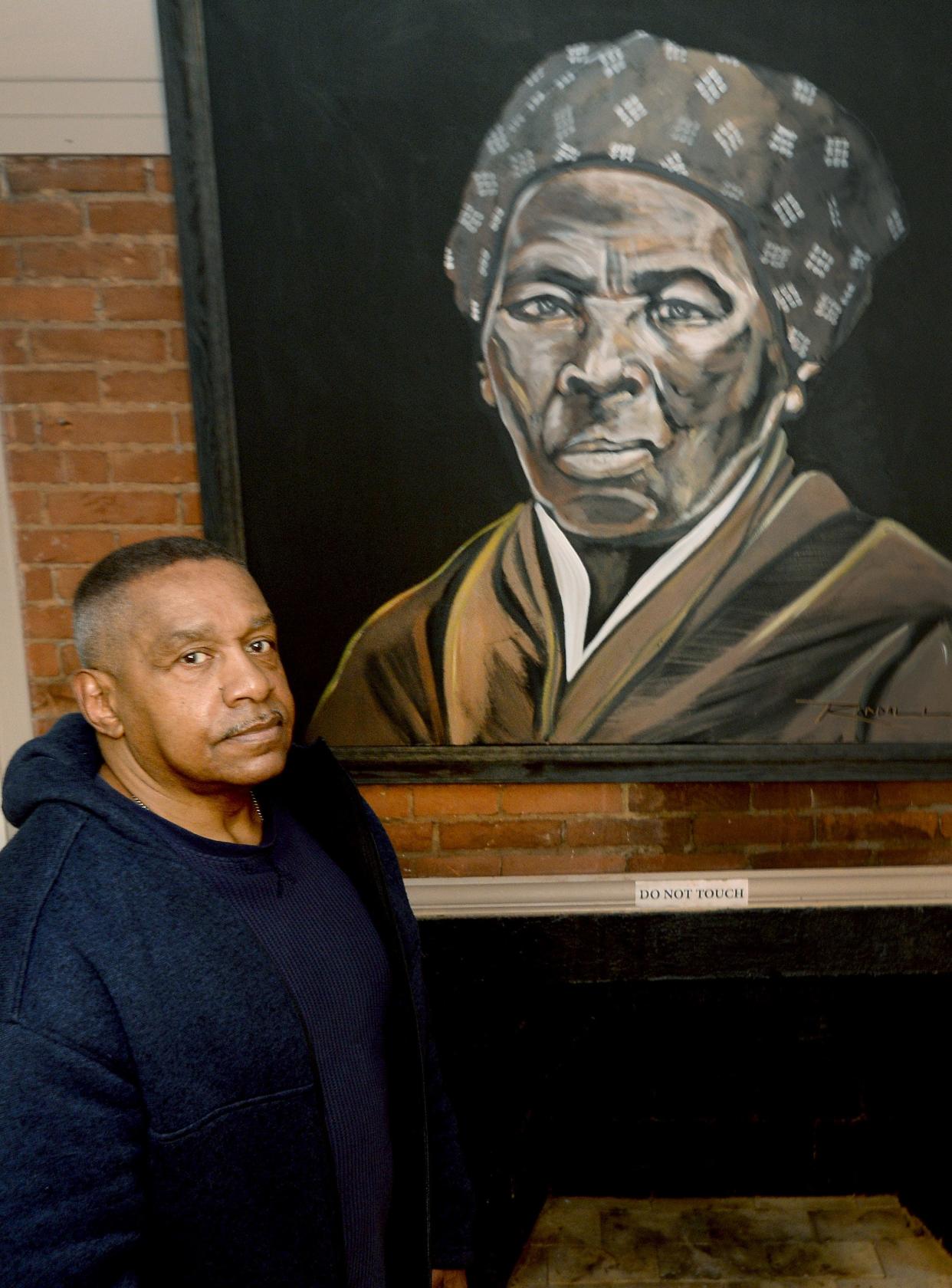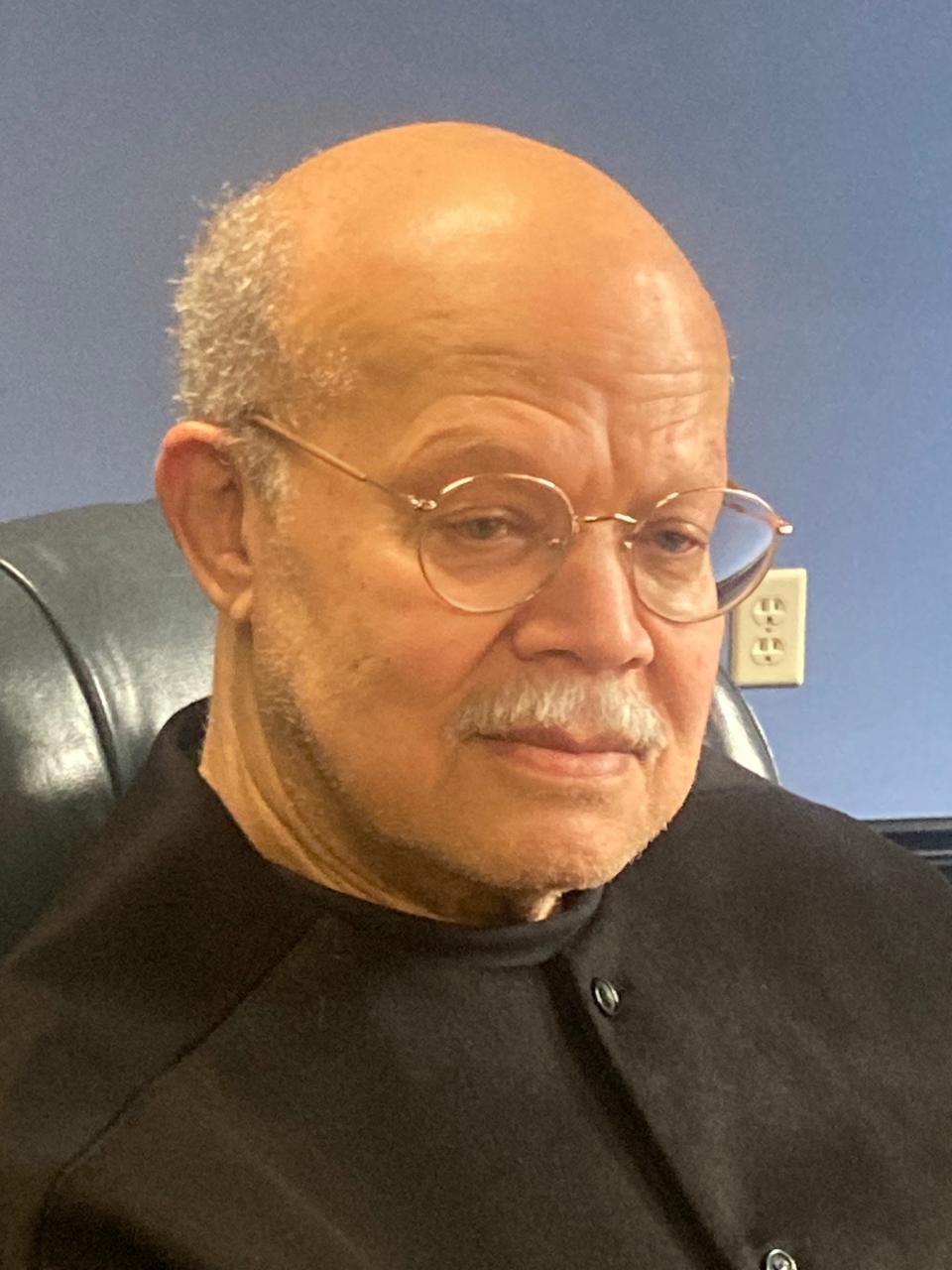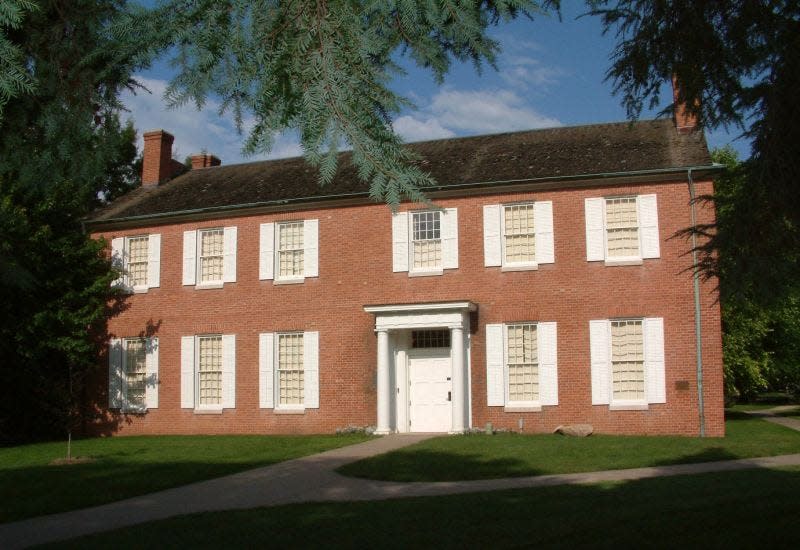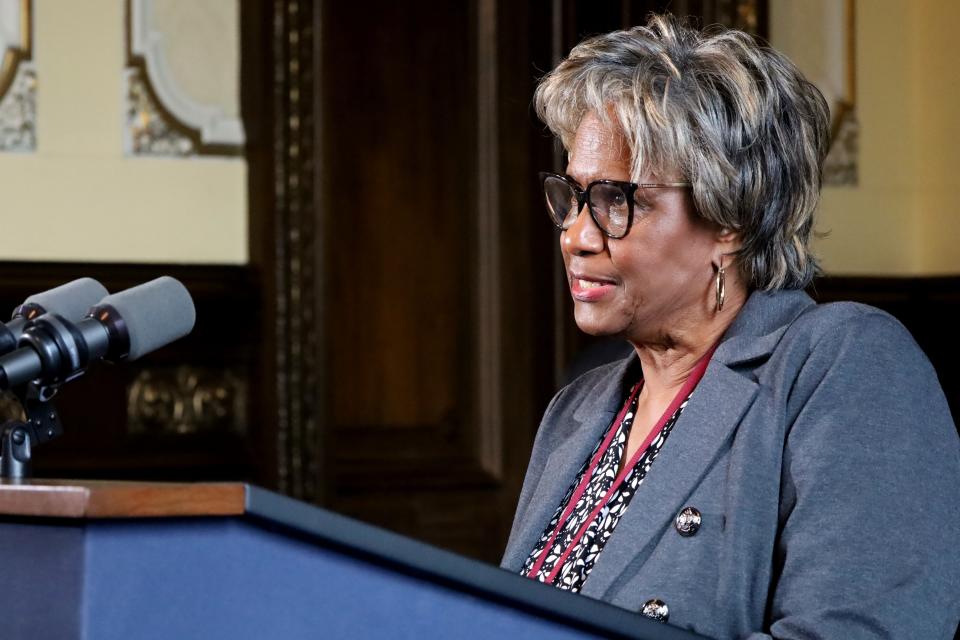'Important effort': Illinois Underground Railroad Task Force works to connect projects

Art Wilson said he can't number the people he has seen moved to tears or simply walk away from an exhibit on the Underground Railroad at the Jacksonville African American History Museum because they were overcome with emotions.
"When I see people experiencing through tears and stuff, I see them identifying with what we go through, and I also see them identifying with their own loss of not knowing this (story)," said Wilson, the museum's founding executive director. "We have people in Jacksonville who didn't know (the Underground Railroad) was here and we advertise all the time.
"Unless people are interested in something like that, they don't encourage themselves to go look for it."
Springfield's Super Bowl connection: Brendan Daly headed again to the NFL's big game
Now Wilson and others who have championed the cause of telling the story of the Underground Railroad, a series of safe places where abolitionists sheltered runaway slaves or "freedom seekers," are about to get a boost.
The Illinois Underground Railroad Task Force, created through a bill last year, met for the first time a couple of weeks ago to begin implementing a strategy to better tell the movement's story by connecting projects and places with an end goal of bolstering tourism in the state.
Jacksonville and Springfield both have connections to the Underground Railroad, which operated from the early 1830s through the end of the Civil War.
Sen. Doris Turner, D-Springfield, who represents the 48th District, is on the task force. Others with local and area ties serving on the task force are Sen. Jil Tracy, R-Quincy, who represents the 50th District; Jennifer Edginton, interim director of the Illinois State Museum in Springfield and Dave Joens, director of the Illinois State Archives in Springfield.
"It would definitely create tourism," said Wilson, who also started a museum with the help of the Morgan County Historical Society Underground Railroad Committee at Woodland Farm, a known "safe house" in Jacksonville. "The minute I found out about the task force, I started asking questions because I thought, I've been doing this for 30 years. I want to get on this train."
On Friday and Saturday, Illinois College in Jacksonville hosts the inaugural Freedom Corridor conference. The Corridor was established to foster collaboration between historic sites, cultural institutions, and community stakeholders. Also, for it to be a central voice in the preservation, advocacy, stewardship and teaching of Black and other diverse histories in central and west central Illinois.
The Jacksonville museum and the Springfield and Central African American History Museum are part of the Freedom Corridor.
Gerald A. McWorter, the great-great-grandson of the founder of New Philadelphia, Illinois, the first town legally set up and registered by an African American and a National Park Service site, will be a special guest of the conference.

An Underground Railroad Task Force webpage has been set up on the Illinois Department of Natural Resources. There, people will be able to share relevant historical stories.
Because of its secretive nature, much of the history of the Underground Railroad wasn't written down, sometimes confounding historians who rely on original source material.
"Most history," said Jacob Friefeld, director of the University of Illinois Springfield's Center for Lincoln Studies, "is written with documents and the entire purpose of the Underground Railroad was to not be able to trace it. They weren't thinking about posterity."
Turner, the first Black person to represent Springfield and Sangamon County in the state legislature, said it was time to shine a light on that history.
“Illinois played a crucial role in freeing slaves and we need to recognize the pioneers who fought for the rights of African Americans, giving them the freedom and justice they deserved," Turner said.
'A hotbed of abolition'
Springfield, Friefeld said, was "pretty lively as far as the Underground Railroad went," while Jacksonville was "a hotbed of abolition," Wilson added.
Two known conductors were African Americans − Jameson Jenkins and William Donnegan − both of whom had connections to Abraham Lincoln in Springfield.
Several sources document that Jenkins, a neighbor of Lincoln's, helped seven runaway slaves move 60 miles north along the Underground Railroad from Springfield to Bloomington in 1850.
Author Nigel Hamilton featured speaker at Abraham Lincoln Birthday Banquet on Feb. 17
A drayman, or transporter, Jenkins drove President-elect Lincoln from the Chenery House to the train depot the morning he began his trip to Washington, D.C. in 1861.
Donnegan was also a neighbor of Lincoln's who made shoes for him. In a memoir generally attributed to Donnegan, he wrote that he "secreted scores" of runaway slaves in his Jefferson Street house.
The 84-year-old Donnegan was lynched during the 1908 Springfield Race Riot.
Others involved in the Underground Railroad, according to a short history written by Dick Hart, included a group of New Englanders who arrived in Sangamon County in 1833 and later established Farmingdale, then known as Farmington, west of Springfield.

"It's not surprising," Friefeld added, "it was pretty lively because hundreds of people escaped the South and took their own freedom every year and Illinois is right on the border of slave states. You have a good anti-slavery population or at least people who are hostile to the Fugitive Slave Act and they're going to help these folks North."
The Fugitive Slave Act of 1850 updated a 1793 law that allowed for the capture and return of runaway slaves and upped the penalties for people aiding their flight.
New Englanders also came to the Jacksonville area, including "the Yale band" which founded Illinois College. Its first president, Edward Beecher, was the brother of Harriet Beecher Stowe, the author of the anti-slavery novel "Uncle Tom’s Cabin." Beecher was also a friend of abolitionist newspaper editor Elijah Lovejoy who was killed by an anti-abolition mob in Alton in 1837.
There was also a sizable community of free Blacks, called "Little Africa." Most of the area Underground Railroad lines through communities like Quincy, Waverly, and Alton, descended on Jacksonville.
If slaves were brought into Jacksonville and Illinois College students found out, Wilson said, they would attempt to locate them and get them to escape with them. Things got so heated that pro-slavery residents printed up a handbill − one is at the Jacksonville museum − warning that if students got caught them, they would deal with them "the same way they dealt with horse thieves, which means hunt them," he said.
Wilson, who works security for the Illinois State Senate, put together a tour of Underground Railroad sites in Jacksonville, including private residences documented to be safe houses or central to the telling of the story.
That includes the Porter Clay House, where the brother of U.S. Rep. and Senator Henry Clay of Kentucky lived.
Porter Clay's wife, Elizabeth Hardin Clay, brought two slaves, Robert and Emily Logan, to Jacksonville. They were required, Wilson said, to pay a fine because Illinois was a free state.

Rumored to be returning to the South, the children hid out in "Little Africa." Robert Logan was captured, pistol whipped and eventually sent South, Wilson said.
Emily Logan was secreted around different places and ended up at what today is Gen. Benjamin Grierson's mansion. A two-year court battle ensued, winding up at the Illinois Supreme Court in Springfield before she finally received her freedom.
'Always living with a smile on his face,' but SHS coach is up against the fight of his life
Wilson recounted another story about a former slave from Jacksonville, David Spencer, who took a group of slaves by train from Jacksonville to Springfield.
One of the members of the party told Spencer, Wilson said, that he saw his former master in the next car. Spencer assured him, Wilson recalled, that he had a revolver and would "use it if I had to."
'Keep the history going'
Wilson said his mother, Alice Mildred Wilson, who was born in Jacksonville in 1916, knew about the Underground Railroad but didn't know Woodland Farm was one of the stops, though she grew up near there. Now 67, Wilson said he was in his mid-30s before he learned about the Springfield Race Riot.
"When I asked my mom why she never told us about (the race riot), she said, 'Why would I tell you about something that was just a normal part of my life?'" Wilson recalled her saying. "That was a shock. How could something that dreadful be normal? Because it was happening everywhere. Blacks saw that as a normal part of their life back then.

"So it's important to keep the history going and tell it in a way that's truthful."
Friefeld said he hoped the task force could help groups like the Freedom Corridor, the National Park Service and Looking for Lincoln, among others telling the Underground Railroad story, "pool their efforts and amplify each other.
"I think it's an important effort," he added. "The biggest loss would be if all of these efforts of the Underground Railroad are going on at the same time and no one is working together and talking to each other. The (task force) can help bring together these voices and when they collaborate, that's going to pay dividends and help them produce even better outcomes."
The Springfield and Central Illinois African American History Museum, 1440 Monument Ave., is open year-round from noon to 4 p.m. Tues.-Sat. The phone number is 217-391-6323. The Jacksonville African American History Museum, 859 Grove St., is open from May to September and otherwise by appointment. Bus tours of the Jacksonville Underground Railroad sites are April 28 and Oct. 6. The phone number is 217-299-6017.
Contact Steven Spearie: 217-622-1788; sspearie@sj-r.com; X, twitter.com/@StevenSpearie.
This article originally appeared on State Journal-Register: Illinois group is trying to bring together Underground Railroad voices

